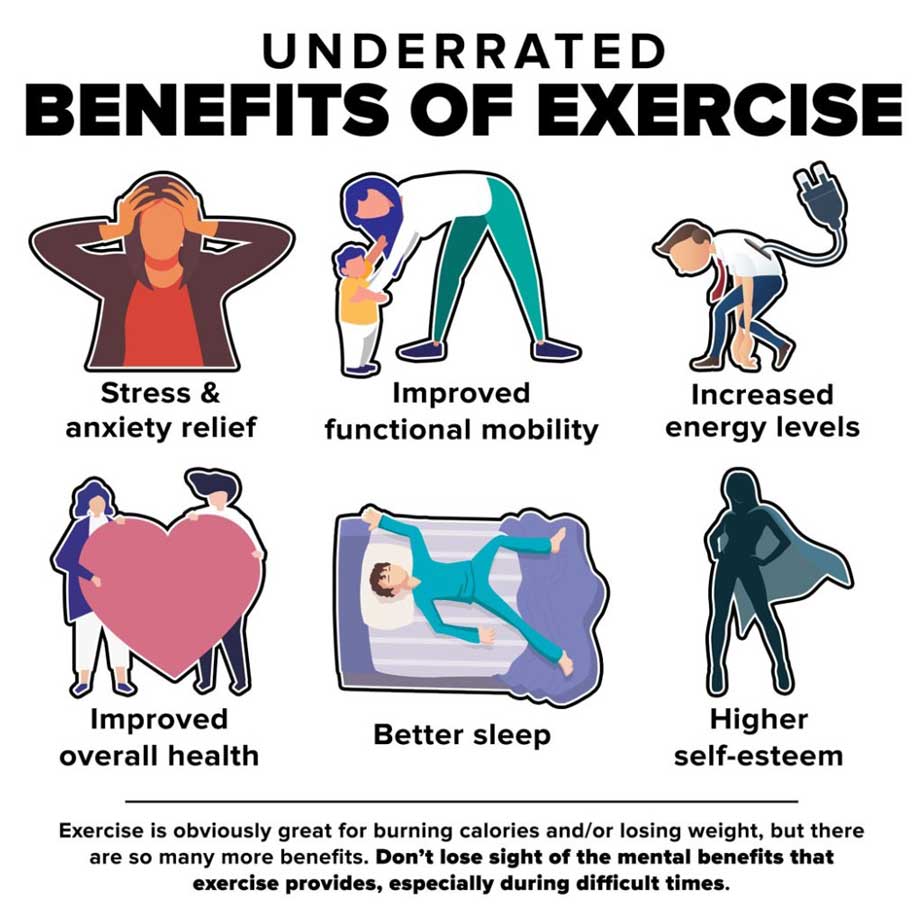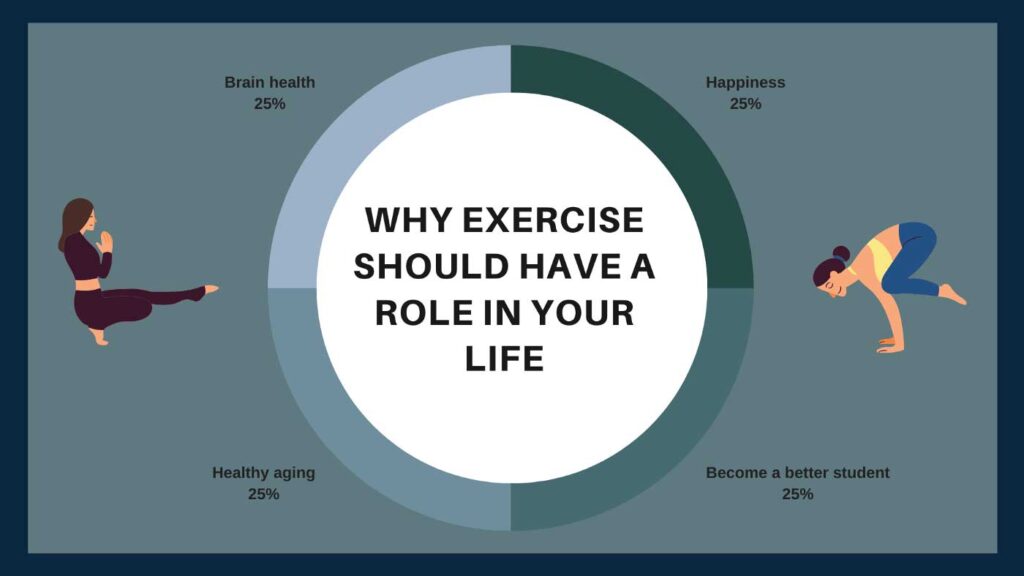IT IS NEVER TOO LATE TO START EXERCISING!
Numerous grown-ups feel like since they haven’t exercised much in their life and it’s useless to begin now. The science intensely proposes that there are as yet various advantages of beginning exercise, regardless of age. The health benefits of beginning to exercise at the later stage of life focuses mainly on the heart and muscles.
It is prompted by healthcare professionals that regular exercise is really great for you, and it can assist you with managing weight. However, on the off chance that you resemble numerous Americans, you are occupied, you have stationary work, and you haven’t yet changed your exercise propensities. Fortunately, it’s never beyond any good time to begin. You can begin gradually, and track down ways of squeezing more actual work into your life. To get the most advantage, you should attempt to get the suggested measure of exercise for your age. Assuming you can get it done, the result is that you will feel good, help forestall or control numerous sicknesses, and possibly even live longer.

BENEFIT OF EXERCISING
The health and medical advantages of regular exercise and physical activity are difficult to overlook. Everybody benefits from exercise, paying little mind to progress in years, gender, or physical capacity. Some of the known benefits include:
- Control your weight: Alongside diet, exercise shoulders a significant part in controlling your weight and preventing obesity. To keep up with your weight, the calories you eat and drink should equal the energy you consume. To shed pounds, you should burn a bigger number of calories than you eat and drink.
- Reduce your risk of heart diseases: Exercise strengthens your heart and works on your blood circulation. The expanded blood stream brings the oxygen level up in your body. This helps bring down your risk of heart problems such as elevated cholesterol, coronary supply route sickness, and respiratory failure. Routine exercise can also bring down your blood pressure and fatty oil (triglyceride) levels.
- Help your body manage blood sugar and insulin levels: Exercise can bring down your blood sugar level and assist your insulin with working better. This can chop down your gamble for metabolic conditions and type 2 diabetes. Also assuming that you as of now have one of those infections, exercise can assist you with overseeing it.
- Help you quit smoking: Exercise might make it easier to stop smoking by lessening your desires and withdrawal symptoms. It can also assist with restricting the weight you could acquire when you quit smoking.
Improve your mental health and mood: During exercise, your body releases synthetic compounds that can work on your mindset and cause you to feel relaxed. This can assist you with managing pressure and decrease your risk of depression. - Help keep your thinking, learning, and judgment skills sharp as you age: Exercise stimulates the release of proteins and other chemicals that improve the structure and function of your brain.
- Strengthen your bones and muscles: Regular exercise can assist children and youngsters with building solid bones. Sometime down the road, it can likewise sluggish the deficiency of bone thickness that accompanies age. The muscle-strengthening exercises can help you increase or keep up with your muscle mass and strength.
- Reduce your risk of some cancers, such as colon, breast, uterine, and lung cancer.
- Reduce your risk of falls: For older adults doing balance and muscle-strengthening exercises in addition to moderate-intensity aerobic activity can help reduce your risk of falling.
- Improve your sleep: Exercise can help you stay asleep for longer as well as fall asleep faster.
- Improve your sexual health: Regular exercise might bring down the risk of erectile dysfunction (ED) in men. For the individuals who as of now have ED, exercise might help with working on their sexual capacity. In ladies, exercise might increase sexual excitement.
- Increase your chances of living longer: Researchers have proved that physical activity can lower your risk of dying early from various causes such as heart disease and some cancers.

HOW TO BUILD YOUR EXERCISE PLAN?
Before building an appropriate exercise plan for yourself you should access your fitness level. Assessing and recording baseline fitness scores will give you benchmarks to measure your progress. Calculating the body mass index will help you assess your aerobic and muscular fitness, flexibility, and body composition.
It’s easy to decide you’ll exercise every day. But you’ll need a plan. The below points will help you design your fitness program.
Make fitness goals: It is important to make your fitness goal before preparing your exercise plan. Setting clear goals can help you measure your progress correctly and stay motivated.
Create a balanced routine: Your fitness level will help you decide between moderate aerobic activity or vigorous aerobic activity, or a combination of moderate and vigorous activity. The healthcare professional believes that you spread out this exercise during a week. To achieve significantly more remarkable health benefits and to help with weight reduction or keeping up with weight reduction, somewhere around 300 minutes seven days is advised.
Sometimes, even small amounts of physical activity are helpful. Even, being active for short time throughout the day can add up to provide a health benefit.
Do strength training exercises: Aim to do a solitary arrangement of each exercise, utilizing a weight or obstruction level weighty enough to tire your muscles after around 12 to 15 repetitions.
Start low and progress slowly: When you are just beginning to exercise, begin carefully and progress gradually. In case you have an injury or a medical condition, consult your chiropractor for help designing a fitness program that gradually improves your range of motion, strength, and endurance.
Build activity into your daily routine: Most people find it difficult to find time to exercise. It is essential to plan time to exercise as you would for some other arrangement. Plan to watch your cherished show while strolling on the treadmill, read while riding an exercise bike, or enjoy some time off to go on a stroll at work.

Plan to include different activities: Various exercises can keep exercise fatigue under control. Broadly educating utilizing low-sway types of action, for example, trekking or water exercise, likewise lessens your possibilities of harming or abusing one explicit muscle or joint. Plan to substitute among exercises that underscore various pieces of your body, like, walking, swimming, and strength preparing.
Try high-interval intensity training: The high-interval intensity training helps provide short bursts of high-intensity activity. This is separated by recovery periods of low-intensity activity.
Allow time for recovery: You may begin exercising with furious energy – working out excessively lengthy or too seriously. You may sometimes surrender when your muscles and joints become sore or harmed. Plan time between meetings for your body to rest and recuperate.
Lastly, it is important to record your progress on paper. It is also important to write your plan may encourage you to stay on track.

OUTLOOK
Beginning an exercise program is a significant choice. However, it doesn’t need to be a staggering one. By arranging cautiously and finding a steady speed, you can lay out a solid propensity that endures forever. Contact us for helping you build an effective exercise plan.

People Also Read:
How To Lose Weight Naturally?
Best Workout For Weight Loss
If you or anyone you know is suffering obesity and pain, our expert providers at Zenith Injury Relief & Wellness Clinic will take care of your health and help you recover.
Call us on 972-210-0033 to book an appointment with our specialists, and begin living your life pain-free.
